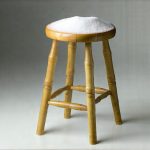The gentle promise of natural relief often draws people towards herbal teas for digestive issues, particularly constipation. Teas marketed for their laxative properties—containing ingredients like senna, cascara sagrada, or aloe vera—can seem appealing as a softer alternative to conventional medications. However, what begins as an occasional aid can quickly evolve into dependence and ultimately disrupt the natural functioning of the bowel. The allure lies in perceived mildness, but consistent overuse creates a vicious cycle that compromises digestive health and introduces a range of unpleasant side effects beyond simply frequent loose stools. It’s critical to understand how these teas work, why reliance is problematic, and what steps can be taken to restore healthy bowel habits.
The appeal also stems from marketing that often downplays the potent nature of these herbal ingredients. Many people assume “natural” equates to inherently safe, overlooking the fact that even natural substances can have powerful physiological effects when consumed regularly or in excessive amounts. The digestive system is a delicate balance, and consistently stimulating it with strong laxatives – whether pharmaceutical or herbal – prevents it from developing its own inherent strength and rhythm. This article will explore the consequences of overusing laxative teas, focusing on the resulting loose bowel patterns and outlining strategies for regaining control of your digestive health. Understanding how your gut reacts to these substances is crucial.
The Mechanics of Laxative Teas & Bowel Disruption
Laxative teas don’t address the root cause of constipation; they simply stimulate the intestines to contract more forcefully, pushing contents through. Ingredients like senna and cascara sagrada contain compounds called anthraquinones, which irritate the intestinal lining, triggering a laxative effect. Aloe vera contains compounds called anthrones that work similarly. This stimulation bypasses the natural peristaltic movement – the wave-like muscle contractions that move food along the digestive tract – leading to an artificial and often forceful evacuation of the bowels. Over time, this reliance weakens the colon’s ability to function independently.
The consistent stimulation leads to a phenomenon called “cathartic colon,” where the bowel becomes dependent on external stimuli to function. Essentially, it ‘forgets’ how to contract effectively on its own. This means that even if you attempt to stop using the tea, your bowels may not resume normal activity without assistance. The result is often chronic constipation when attempting to discontinue use, alongside ongoing diarrhea when continuing with the teas. It’s a paradoxical situation where the very solution creates a more significant problem. Considering habits that promote consistent bowel movements can prevent this cycle.
Furthermore, frequent bowel movements induced by these teas don’t allow sufficient time for water absorption in the colon. This leads to loose, watery stools and can contribute to dehydration. The constant irritation of the intestinal lining also diminishes its protective barrier, potentially increasing vulnerability to bacterial imbalances and other digestive issues. The body is constantly reacting to a perceived emergency, creating a state of ongoing inflammation and instability within the gut.
Understanding Cathartic Colon & Dependence
Cathartic colon isn’t an immediate outcome; it develops gradually with consistent overuse. It’s not so much a physical change to the structure of the colon itself, but rather a functional impairment – a loss of natural tone and motility. – The key indicators include:
– Increasing dosage requirements over time for the same effect.
– Constipation returning more intensely when attempting to stop tea use.
– A feeling of incomplete evacuation even after frequent bowel movements.
– An overall sense of digestive distress and irregularity.
The psychological aspect also plays a role in dependence. Individuals may develop an anxiety around bowel movements, fearing constipation if they don’t take the tea, perpetuating the cycle. This creates a self-reinforcing pattern where the perceived need for the tea outweighs the discomfort caused by its side effects. Breaking this dependency requires recognizing the psychological component and addressing it alongside physical restoration of bowel function. Learning how to ease pressure around these expectations can also help.
The Role of Electrolyte Imbalance & Dehydration
The frequent diarrhea associated with laxative tea overuse isn’t just inconvenient; it can lead to significant electrolyte imbalances. Diarrhea causes a loss of essential minerals like potassium, sodium, and magnesium – all crucial for nerve and muscle function, including the heart. – Symptoms of electrolyte imbalance can include:
– Muscle cramps and weakness.
– Fatigue and dizziness.
– Irregular heartbeat.
– Confusion or cognitive impairment in severe cases.
Dehydration exacerbates these imbalances, further compromising bodily functions. While drinking more water seems like a logical solution, it doesn’t necessarily replace lost electrolytes effectively. Relying solely on water can dilute electrolyte levels even further. It’s vital to recognize that restoring fluid balance and replenishing electrolytes are both essential components of recovery. Recognizing signs of pancreatic stress, which dehydration can exacerbate, is also important.
Restoring Bowel Function & Breaking the Cycle
Breaking free from laxative tea dependence isn’t easy, but it’s achievable with a multi-faceted approach. 1. Gradual Reduction: Abruptly stopping can worsen constipation and withdrawal symptoms. Gradually reduce the amount of tea consumed over several weeks or months, carefully monitoring your bowel movements and adjusting the reduction rate as needed. 2. Dietary Changes: Increase fiber intake through whole grains, fruits, vegetables, and legumes. Fiber adds bulk to stool, promoting natural peristalsis. 3. Hydration & Electrolyte Replenishment: Drink adequate water throughout the day, but also incorporate electrolyte-rich foods or supplements (under a healthcare professional’s guidance). Bananas, oranges, spinach, and yogurt are good sources of electrolytes. 4. Lifestyle Adjustments: Regular physical activity stimulates bowel movement. Stress management techniques can also help regulate digestive function. 5. Seek Professional Guidance: A doctor or registered dietitian can provide personalized advice and support throughout the recovery process. They can assess your individual needs and rule out any underlying medical conditions contributing to constipation. Do not self-treat – professional guidance is crucial for a safe and effective transition. If bloating accompanies these issues, understanding the role of hormones could be beneficial.
The key takeaway is that addressing loose bowel patterns from laxative tea overuse requires understanding the underlying mechanisms of dependence, restoring natural bowel function through dietary and lifestyle changes, and seeking appropriate healthcare support. It’s about rebuilding a healthy relationship with your digestive system, not just finding quick-fix solutions. Additionally, being aware of signs of liver damage from OTC medications is important for overall health.


















